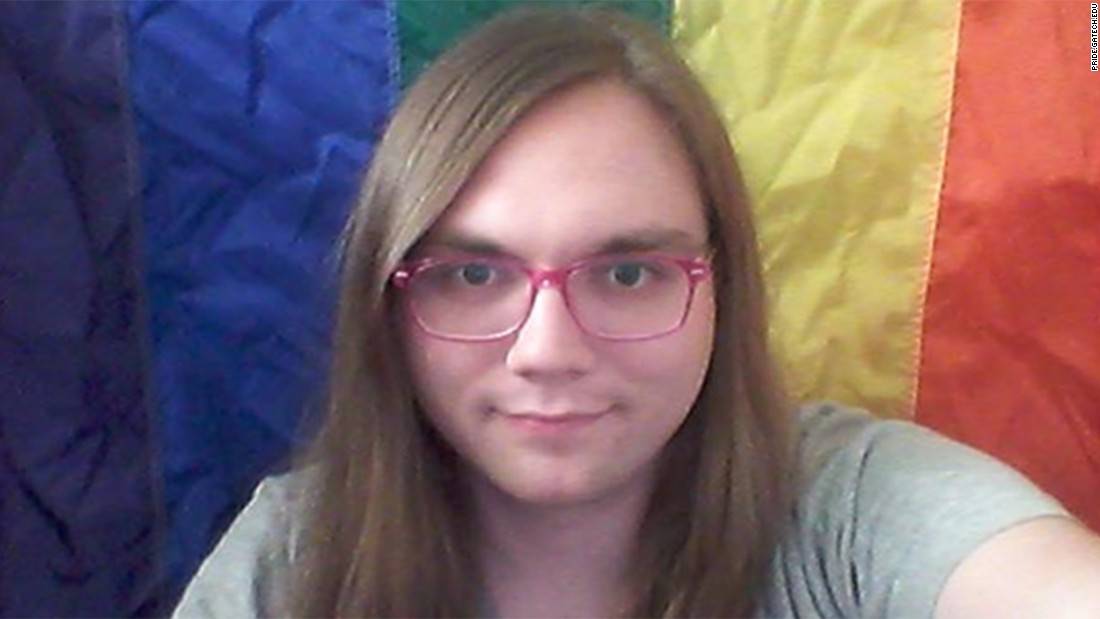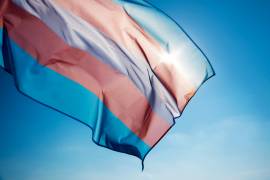Scout Schultz spent the last few moments of their life being misgendered and writhing in pain from a gunshot wound to the chest.
As an advocate, Scout’s killing is yet another reminder for me. A reminder of the gravity of the work I am a part of here at Lambda Legal.
Scout’s life, like the lives of many other transgender and gender non-conforming (TGNC) people, was a difficult one. They lived in a world where discrimination against trans and gender-nonconforming people is open and rampant.
Our lawsuits, policy work and educational advocacy are all aimed at ending this discrimination. And as we reel from this latest senseless killing of a member of the LGBTQ community at the hands of law enforcement, we must pledge to continue relentlessly working for change around the issues underlying Scout’s death.
Police violence is a minority issue, and it must be stopped.
Almost every week, we are confronted with media coverage of police violence against people of color–in particular Black and Brown people. Similarly, the prevalence of violence against TGNC people–and against trans women of color in particular–represents some of the highest statistics per minority group.
But all too often, many in the LGBTQ community are silent around instances of violence faced by racial and ethnic minorities, immigrant communities and religious minorities.
Police violence and societal violence are minority issues. And what many white (or at least non-BIPOC) LGBTQ people seem to forget is that we are all minorities
There is a long history of mistreatment of LGBTQ people in this country by law enforcement, including profiling, entrapment, discrimination, harassment and brutality – particularly against communities of color and transfeminine people. It wasn’t so long ago that raids at gay bars were commonplace (they’re still unfortunately common in some places), or that consensual sex between adults of the same gender was illegal. We cannot remain passive while our sister movements suffer and die at the hands of law enforcement.
When one minority is discriminated against, we are all discriminated against. We must hold ourselves accountable and stand up and speak out against discrimination in any form. We must rise-up in solidarity against the ever-growing tide of police violence. And we must demand reform around the policing practices of minority communities.
We must also end stigma around mental health issues.
All too often, TGNC people are portrayed as innately mentally ill, confused or disturbed. This must end. Not only is this assumption discriminatory, but it also conveniently leaves out society’s impact on our lives and mental health. That Scout was suffering from mental health issues shows only that TGNC people are as human as anyone else.
TGNC peoples’ very lives, existences and identities are, at best, viewed with apathy and, at worst, a basis for discrimination across this country. It’s unreasonable to expect us to be unaffected as society tears us down every change it gets. Its hard enough just to survive.
A mental health crisis or breakdown is a cry for help. It does not justify police use of lethal force. No matter what Scout was going through that night and no matter Scout’s mental health history, they did not deserve to die.
Scout was living in a world that operates structurally and fundamentally against them and people like them. They were also living in a world where law enforcement is not adequately trained in de-escalation. Even if they were carrying a multipurpose tool, how is it conceivably reasonable that the response to someone going through a mental health crisis is to shoot them?
Societal failings are not Scout’s fault, and they shouldn’t have had to pay the ultimate price for them.
Instead of focusing on Scout’s mental health, we should instead focus on widespread violence, employment discrimination, income inequality, healthcare discrimination, homelessness and education discrimination that TGNC people face in this country. Then, we should ask ourselves how our own mental health would fare against those odds.
There’s so much work to be done to combat violence against marginalized communities.
I am proud of the work I do here at Lambda Legal, but it is such a small piece of all that must be done.
My journey to this work and to Lambda Legal was a difficult one. I struggle with the complexities of being an advocate and at the same time – outside of my job – dealing with transphobia and racial prejudice on an almost daily basis. The emotional and psychological impact of my (and my community’s) status as second-class is ever-present in my mind.
But even more so, the violence and animus towards my community is something that weighs on my heart every day.
It is immensely fulfilling to work at our country’s oldest and largest national legal LGBTQ and HIV/AIDS advocacy organization. At Lambda Legal, we confront these issues head-on every single day. Whether it’s fighting for current and future trans service members in our Karnoski v. Trump lawsuit or for Jameka Evans, who was forced out of her job as a hospital security guard for being a masculine-presenting lesbian, our ultimate goal is to bring full equality to all LGBTQ people in this country.
I empathize to the core of who I am with Scout and the struggles they faced. Their life and the way it ended will forever remain with me and fuel my work.
But it is on all of us to remember Scout and fight on in their name.





